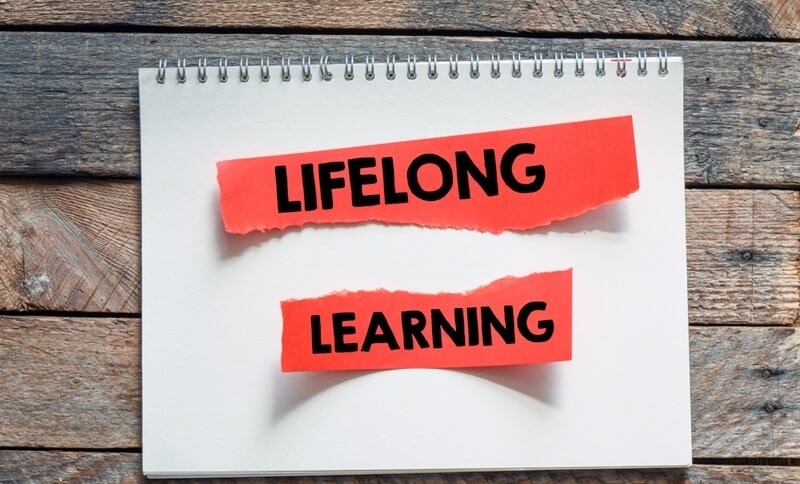
In these days of rapid-changing international fulfillment, it is fashioned via how quickly you adapt and broaden. Lifelong reading enables you to live applicably, sharply, and confidently in every aspect of life. It’s not a good deal of expert development—it’s additionally about hobbies, personal achievement, and resilience. With a commitment to personal improvement, mastering the use of practical online studying pointers, and utilizing self-education strategies, you could make getting to know an addiction that fits seamlessly into your daily routine. By specializing in growing information day by day and in a manner to look at continuously, you can sharpen your mind and aid your abilities for years to come.
Lifelong learning is more than a fashion—it’s a want in an international context described with the aid of consistent trade. Technology, industries, and social expectations evolve all at once, and staying modern requires a mindset that values nonstop boom.
A lifelong learner does not wait for opportunity; they invent opportunity by persevering and investing in themselves.

Personal development learning is the coronary heart of lifelong education. It’s more than gaining technical understanding; it’s about building the mindset and emotional competencies needed to thrive.
By integrating private development into your journey, you ensure that your studying isn't always just about external accomplishment but additionally about inner growth.
Many people may be surprised to be able to analyze constantly without becoming exhausted. The key to learning is to make it manageable and part of your lifestyle.
Continuous learning benefits from curiosity and practice—it is not about cramming but about continuous daily improvement and growth!
The net has converted how we acquire know-how. Considering the unlimited options of courses, webinars, and tutorials to leverage for practical online learning tips will allow you to optimize your experience.
Online learning allows you to study new skills anywhere, making online training a key component of continuous learning.
Self-directed learning is one of the most effective aspects of continuous learning. When you apply self-directed learning strategies, you are responsible for what, when, and how you learn.
Above all, these strategies promote self-reliance, discipline, and resilience over time, which sharpen self-direction and thinking skills.
The challenge of expanding your knowledge every day makes reading not a solitary act, but an activity that becomes a part of your lifestyle. Even putting aside 15-20 minutes daily can result in healthy, longitudinal change.
Small everyday efforts compound into lifelong statistics, turning analysis into second nature.
To prevail, lifelong learning wants to waft past purpose—to be embedded into your everyday.
When getting to know will become recurring, you won't struggle to find time for it—it will fit into your lifestyle.
While the advantages are clear, many face annoying situations when adopting a lifelong learner’s mindset. Common obstacles can include a loss of time, motivation, or resources.
You can stay committed to personal growth and learning by acknowledging and addressing these barriers.
Curiosity is fuel in the face of great mastery. Curiosity, as a mindset, will lead you to question and discover new areas to learn and engage with many different ideas.
Curiosity is the spark that keeps the flame alive for lifelong learning.
Digital technology has made continuous learning simpler than ever. Whether through cellular applications or digital classrooms, using technology to enhance learning has become an outstanding enablement of self-directed learning methods and online learning activities.
Technology is changing not only how we learn but also how we apply learning in fast-paced, contemporary environments.
One of the most neglected aspects of personal development learning is reflection. Periodic reflection on your progress will help to cement your knowledge and identify areas for growth.
Reflection guarantees that lifelong studying isn’t just about absorbing records but moreover about using them correctly.
The mindset you possess has an immense impact on how efficiently you learn. Individuals with a growth mindset flourish because they perceive challenging situations as opportunities.
By fostering a growth mindset, you lay the groundwork for growing expertise each day and lifelong learning.
As industries evolve, the need for lifelong learning will most effectively accentuate. The emerging era, moving economies, and worrying global situations demand adaptable, informed human beings.
The future, in part, is determined for those willing to pursue studying within their life pathway.
Lifelong reading sharpens your thoughts and expands your capabilities, equipping you for personal and professional success. By adopting personal improvement mastery, working closer to online getting to know you tips, using self-education strategies, and specializing in increasing knowledge every day, you may thrive in a world of ordinary exchange. Start small, live steady, and watch your boom spread.
This content was created by AI